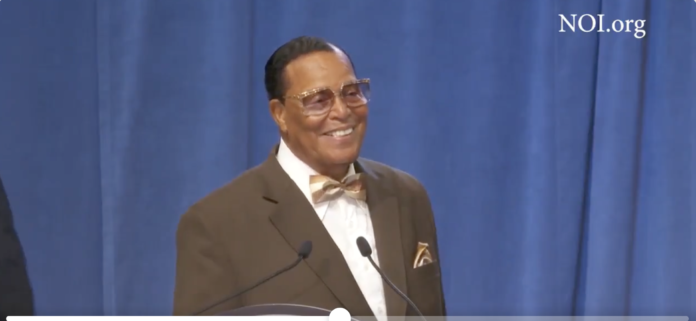
By Tanu Henry, Antonio Ray Harvey and Joe W. Bowers Jr., California Black Media
Rep. Barbara Lee Responds to Sen. Butler’s Choice to Not Run for U.S. Senate
Shortly after Sen. Laphonza Butler announced that she will not run in the race to succeed Sen. Dianne Feinstein next year, Rep. Barbara Lee (D-CA-12) responded to the news.
“Senator Butler took on the enormous responsibility of filling an open senate seat with grace, integrity, and a deep commitment to delivering for the people of California,” wrote Lee in a statement on social media.
“I look forward to continuing our work together for the remainder of her term,” continued Lee, who is among the three contenders and the only Black American — in the crowded race for the U.S. Senate seat Butler currently occupies.
Gov. Newsom appointed Butler to complete the term of Feinstein, who passed away last month. The other two contenders for Senator with Lee are her Democratic colleagues, Congressmembers Katie Porter (D-CA-47) and Adam Schiff (D-CA-30).
In a statement on Oct. 19, Butler said her decision not to run may not be what people expected, but it is the best one for her.
“I’ve always believed elected leaders should have real clarity about why they’re in office and what they want to do with the responsibility and power they have,” wrote Butler in a statement.

“I’ve spent the past 16 days pursuing my own clarity – what kind of life I want to have, what kind of service I want to offer and what kind of voice I want to bring forward,” she continued. “After considering those questions I’ve decided not to run for a full term in the US Senate. Knowing you can win a campaign doesn’t always mean you should run a campaign. I know this will be a surprise to many because traditionally we don’t see those who have power let it go.”
Quoting Muhammad Ali, Butler added, “Don’t count the days. Make the days count. I intend to do just that.”
Butler, who expressed strong support for the Black press during a 30-minute Zoom call last week, has not yet announced her endorsement for her successor.
Sen. Steve Bradford, Mayor Karen Bass Mourn Former Assemblymember Cindy Montañez
Sen. Steven Bradford (D-Gardena) said he is saddened by the passing of Assemblymember Cindy Montañez, who represented the 39th District in the State Assembly from 2002 to 2006.
Montañez, who Bradford called “dear friend, a great elected leader and a trailblazer,” died at 50 on Oct. 21 after battling cancer.
“Cindy Montañez served the people of San Fernando, Los Angeles and California in many capacities,” said Bradford, Vice Chair of the California Legislative Black Caucus (CLBC) in a statement.
“During her career, she shattered glass ceilings serving as the youngest woman elected to the San Fernando City Council and the second youngest woman elected to the State Assembly. She was also the first Latina and first Democratic woman to serve as Chair of the Assembly Rules Committee,” added Bradford.
Bradford remembered Montañez warm smile and her love for music.
“I have no doubt she is dancing in heaven. She handled her many health challenges with grace and style never asking why me? She was an inspiration to all who knew and loved her. Rest in power, my friend,” mourned Bradford.
L.A. Mayor Karen Bass, who served as Speaker of the California Assembly, remembered working closely with Montañez.
“I saw her tenacity up close many times. She was by my side when we fought together in Sacramento, making difficult decisions to help our state and she advised me when I served in Congress on a range of issues impacting our city. Throughout it all, one thing was always clear,” said Bass. “It was an honor just last month to recognize her with members of the City Council.”
Non-Profits, Places of Worship Have Until Oct. 27 to Apply for State Grants to Improve Security
Last week, Gov. Newsom announced that he has doubled the funding for a state grant program created to help religious institutions, places of worship and faith-based non-profit improve their security.
‘The deadline to apply is Oct. 27.
“Today’s announcement authorizes $10 million in state funding to immediately increase police presence at places of worship and authorizes an additional $20 million investment to the California State Nonprofit Security Grant Program to provide physical security enhancements to nonprofit organizations — including synagogues and mosques — that are at high risk for violent attacks and hate crimes,” read an email from Newsom’s office.
“The program fully funds upgrades that include reinforced doors and gates, high-intensity lighting and alarms, access control, and more,” the email provided more details.
IRS: You Now Have Until Nov. 16 to Pay Your 2022 Income Tax
The Internal Revenue Service (IRS) and California Franchise Tax Board (FTB) verified that Californians who had postponed filing their taxes until the October 16, 2023, deadline — now have until Nov. 16, 2023, to file and pay their 2022 taxes to avoid penalties.
FTB generally conforms to the IRS’s deferred schedules for events declared as disasters by the U.S. President.
In addition, taxpayers in 55 California counties, excluding Lassen, Modoc and Shasta counties — who were impacted by winter natural disasters — are eligible for an extension to file and pay their 2022 federal income taxes until Nov. 16, 2023.
Taxpayers impacted by a presidentially declared disaster may claim a deduction for the disaster loss. More details and guidelines are available in FTB Publication 1034, titled “2022 Disaster Loss: How to Claim a State Tax Deduction.”
Taxpayers can claim a disaster loss either on their 2023 return next spring, or on this year’s return against 2022 income. An amended return may be filed by those who have already filed this year. Claiming the loss on a 2022 return allows for a quicker refund.
California Schools to Teach Media Literacy in Every Grade
Assembly Bill (AB) 873, authored by Assemblymember Marc Berman (D-Menlo Park), was signed by Gov. Gavin Newsom on Oct. 14. The legislation establishes safeguards as young people grow more reliant on the internet and social media as a source for news and information.
AB 873 integrates media literacy instruction into the four core subjects that all students learn from kindergarten through 12th grade in California. AB 873 will bring California in line with a small but growing number of states teaching media literacy in grade school.
“As we’ve seen too often in the last decade, what happens online can have the most terrifying of real-world impacts. From climate denial to vaccine conspiracy theories to the January 6 attack on our nation’s Capital, the spread of online misinformation has had global and deadly consequences,” Berman stated. “We have a responsibility to teach the next generation to be more critical consumers of online content and more guarded against misinformation, propaganda, and conspiracy theories.”
According to the Public Policy Institute of California (PPIC), full digital access remains lower among Latino (63%), Black (71%), and low-income households with school children (59%).
AB 873 directs the Instructional Quality Commission (IQC) to incorporate media literacy content into the English language arts/English language development, science, mathematics, and history-social science curriculum frameworks when they are next revised.
Generation Up (GenUp), a student-led nonprofit that sponsored AB 873, praised Newsom for his decision.
“We want to again thank our community partners for their support and look forward to continuing to advocate for California’s students alongside them,” stated Nicholas Harvey, K-12 Policy Director at GenUp.
Biden’s “Hydrogen Hub” Plan Set to Generate Thousands of Clean Energy Jobs in California
Last week, clean energy advocates and industry experts praised a new federal government program that is expected to bring thousands of jobs to California.
As part of President Biden’s Investing in America agenda, a key pillar of Bidenomics – the President’s economic plan — the U.S. Department of Energy (DOE) launched the $7 billion Regional Clean Hydrogen Hubs (H2Hubs) program across the nation on Oct. 13.
The program, which creates seven regional hubs in seven states, including California, is expected to be a boon for Black and other minority communities. It is part of the federal government’s Justice40 initiative, which requires that 40% of the “overall benefits” of the program will be used to invest in marginalized communities and places that have been disproportionately impacted by pollution.
“The seven selected regional clean hydrogen hubs will catalyze more than $40 billion in private investment and create tens of thousands of good-paying jobs – bringing the total public and private investment in hydrogen hubs to nearly $50 billion,” the Biden-Harris administration said in a statement.
The program is designed to accelerate the commercial-scale deployment of low-cost, clean hydrogen — a valuable energy product that can be produced with zero or near-zero carbon emissions and is crucial to meeting the President’s climate and energy security goals, according to the White House.

“Unlocking the full potential of hydrogen—a versatile fuel that can be made from almost any energy resource in virtually every part of the country—is crucial to achieving President Biden’s goal of American industry powered by American clean energy, ensuring less volatility and more affordable energy options for American families and businesses,” stated U.S. Secretary of Energy Jennifer M. Granholm.
“This federal investment is significant because it complements and it unlocks so much private investment and investment from the states,” said Chris Hannan, president of ARCHES partner State Building and Construction Trades Council of California, in a statement.
Min. Louis Farrakhan and the Nation of Islam File $4.8 Billion Defamation Lawsuit Against Anti-Defamation League, Simon Wiesenthal Center
Last week, the Nation of Islam (NOI) and its leader, Minister Louis Farrakhan, filed a lawsuit against the Anti-Defamation League (ADL), its CEO, Johnathan Greenblatt, the Simon Wiesenthal Center (SWC), and Rabbi Abraham Cooper of the SWC/
The suit, charging the plaintiffs with first amendment violations and defamation, was filed on Oct. 16 in the Federal Court of the Southern District of New York.
“For over 40 years, the Defendants have falsely labeled Minister Farrakhan and the NOI as ‘anti-Semites,’ and as ‘anti-Semitic’ because of a difference in theological viewpoints, and for his pointing out misbehavior of some members of the Jewish community, among other things,” reads a statement the NOI released.
“This false labeling has hindered Minister Farrakhan in his Mission, which is to deliver the Truth taught by the Most Honorable Elijah Muhammad that will correct the condition of spiritual, mental and moral death of the Black man and woman of America that came as a result of the 310 years of chattel slavery and over 150 years of oppression and suppression thereafter,” the statement continued.
The suit names several other renowned “victims” who have been “mischaracterized” as “antisemitic,” including “the late Nelson Mandela, President Jimmy Carter, Reverend Jesse Jackson, Bishop Desmon Tutu, and many more.”
The suit is asking for $4.8 Billion in damages.
Report: “Struggle for Power” in Higher Ed Is Stalling Advances in Online Education
Despite the rising demand and rapid adaptation to online education, a recent report raises troubling concerns about how the state’s higher education system is negatively impacting the mode of learning in California.
California Competes: Higher Education for a Strong Economy identified specific issues hindering the advancement of online learning, explored why they exist and provided guidance to public postsecondary decision makers on how to address them.
According to the report, released by California Competes, an educational advocacy organization focused on underserved communities, the five main categories of concern are: quality, data, organizational, finance, and culture and value issues.
“Reluctance to embrace online education is rooted in a struggle for power among stakeholders in California’s public higher education system: California Community Colleges (CCC), California State University (CSU), and University of California (UC),” the report asserts. “The resulting tensions are exacerbated by questions about online education’s quality, a dearth of robust data, siloed institutional administrative controls, a lack of understanding of funding models, and a culture that values tradition over change.”
California Competes says the study serves as a roadmap outlining steps to “strategically leverage online learning” based on the following facts:
- 3.9 million Californians who intend to enroll in college are interested in exclusively online courses.
- Access to online courses is the top motivator for enrollment in California’s Community Colleges.
- The University of California and the California State University have goals to at least double online education enrollment.


